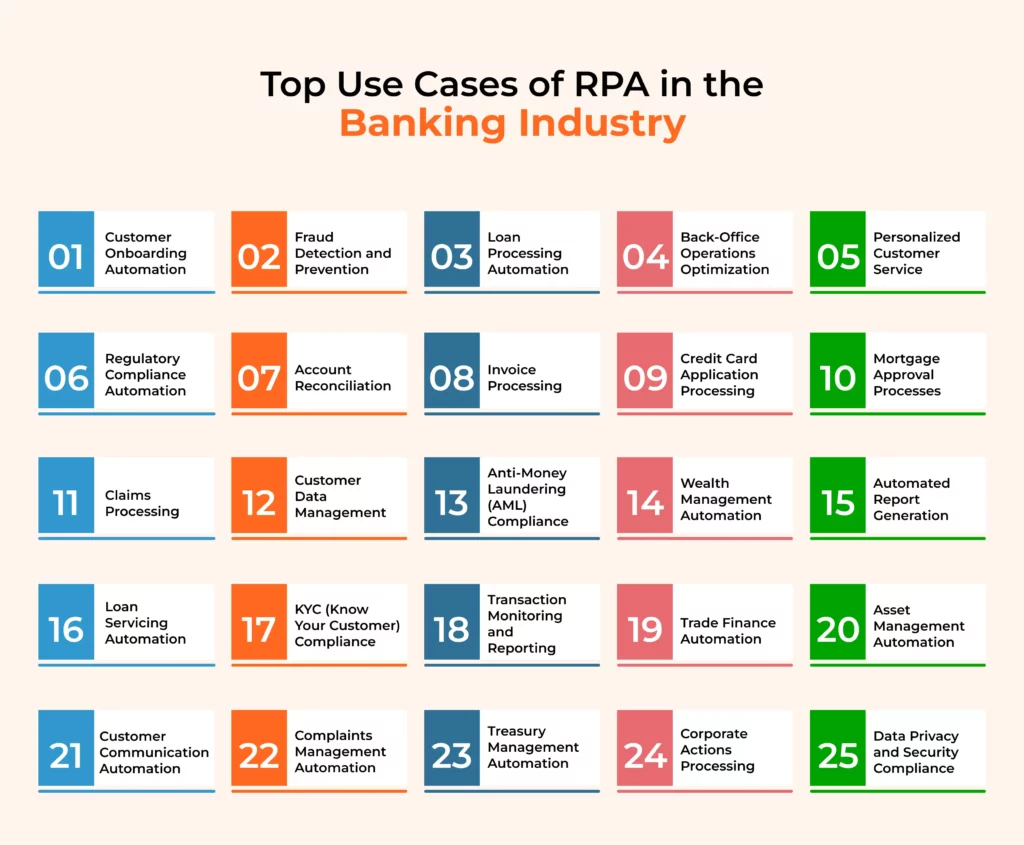“The measure of intelligence is the ability to change.” – Albert Einstein
In today’s dynamic world, Einstein’s words resonate profoundly. Whether it’s individuals navigating their journeys or businesses striving for success, adaptability and innovation are paramount. Standing still only leads to falling behind and eventually becoming outdated.
The banking industry, like many others, has encountered challenges in keeping pace with technological advancements. Yet, embracing innovation has become imperative for delivering exceptional customer experiences and remaining competitive in a bustling marketplace.
The global fintech market size reached approximately USD 226.71 billion as of 2023 and is projected to grow at a CAGR of 16.8% between 2024 and 2032, reaching a value of around USD 917.17 billion by 2032, according to Expert Market Research. This rapid growth underscores the industry’s increasing reliance on technological solutions to meet evolving customer demands and market trends.
Among the transformative technologies reshaping the banking sector, Robotic Process Automation (RPA) stands out as a game-changer. In this blog, we will delve into the realm of RPA and explore its myriad applications in revolutionizing traditional banking processes.
Let’s begin by gaining a deeper understanding of RPA.
What is Robotic Process Automation (RPA)?
RPA, or Robotic Process Automation, is a cutting-edge technology that uses software robots or “bots” to automate repetitive tasks and streamline workflows within organizations. These RPA bots are programmed to mimic human actions, such as logging into applications, entering data, and performing calculations, but with greater speed, accuracy, and consistency.
Unlike traditional automation solutions, which typically require complex coding and integration, RPA bots can be trained to perform tasks by observing and learning from human actions. This makes RPA highly versatile and adaptable to various business processes across different industries.
One of the key advantages of RPA is its non-invasive nature, as it can work alongside existing IT systems without the need for extensive infrastructure changes or disruptions. This makes it a cost-effective solution for automating manual tasks and processes, freeing up employees to focus on more strategic and value-added activities.
In essence, RPA empowers organizations to optimize their operations, improve efficiency, and drive digital transformation by automating repetitive tasks and workflows.
Top 25 Use Cases of RPA in the Banking Industry
As RPA gains traction in the banking industry, its applications are becoming increasingly diverse and impactful. Let’s explore some of the top RPA use cases in banking and how this transformative technology is revolutionizing traditional processes.

Customer Onboarding Automation
RPA bots streamline the customer onboarding process by automating document verification, data entry, and compliance checks. This ensures a seamless and efficient experience for new customers while reducing processing time and errors.
Fraud Detection and Prevention
RPA in the banking industry plays a crucial role in fraud detection and prevention by continuously monitoring transactions, analyzing patterns, and flagging suspicious activities in real time. By automating these tasks, banks can proactively identify and mitigate fraudulent behavior, safeguarding customer assets and maintaining trust.
Loan Processing Automation
RPA bots automate loan application processing, from data collection and verification to credit scoring and approval. This accelerates the loan approval process, improves accuracy, and enhances customer satisfaction by reducing waiting times.
Bespin Labs Partners With Jellyfish Technologies To Launch Patronum, Revolutionizing Google Workspace Management And Enhancing Organizational Efficiency
Back-Office Operations Optimization
RPA in the banking industry streamlines back-office operations by automating repetitive tasks such as data entry, document processing, and reconciliations. This frees up employees of the banking industry to focus on more strategic initiatives while reducing operational costs and improving efficiency.
Personalized Customer Service
RPA in banking enables personalized customer service through chatbots and virtual assistants that can handle routine inquiries, provide account information, and offer product recommendations based on customer preferences. This enhances the customer experience and fosters loyalty.
Regulatory Compliance Automation
Banking RPA compliance use cases involve automating regulatory reporting, ensuring adherence to compliance requirements, and conducting internal audits. RPA bots accurately collect, analyze, and report data, reducing the risk of non-compliance and associated penalties.
Account Reconciliation
RPA in banking automates account reconciliation processes by comparing transaction records, identifying discrepancies, and reconciling accounts in real-time. This minimizes errors, improves accuracy, and speeds up the reconciliation process.
Invoice Processing
In banking, RPA use cases involve automating invoice processing tasks, encompassing data extraction, validation, and approval. RPA bots excel at efficiently handling high volumes of invoices, thereby reducing processing time and minimizing manual errors.
Credit Card Application Processing
RPA in the banking industry streamlines credit card application processing by automating document verification, credit checks, and application approval workflows. This accelerates the application process, improves accuracy, and enhances customer satisfaction.
Mortgage Approval Processes
RPA in banking can analyze applicant data, verify documents, and calculate eligibility criteria, streamlining the approval process and reducing turnaround times.
Claims Processing
RPA in the banking industry automates claims processing tasks such as data entry, document verification, and claims adjudication. This accelerates claim processing, reduces errors, and improves customer satisfaction by expediting claim settlements.
Customer Data Management
RPA automates customer data management tasks, including data entry, updating customer records, and data migration. This ensures data accuracy, enhances data security, and improves operational efficiency in managing customer information.
Anti-Money Laundering (AML) Compliance
RPA in banking can analyze large volumes of transactions in real time, flagging potential money laundering activities and ensuring regulatory compliance.
Wealth Management Automation
RPA bots in the banking industry can perform tasks such as data aggregation, investment tracking, and risk assessment, enabling wealth managers to make informed decisions and provide personalized services to clients.
Automated Report Generation
RPA in banking automates report generation tasks by collecting data from various sources, formatting reports, and distributing them to relevant stakeholders. This streamlines the reporting process, reduces manual effort, and ensures timely and accurate reporting.
Loan Servicing Automation
RPA in the banking industry can automate loan servicing tasks such as payment processing, account updates, and customer communication. RPA bots can also handle loan modifications, deferments, and forbearances, improving efficiency and reducing manual effort.
KYC (Know Your Customer) Compliance
RPA in banking can automate KYC processes by collecting, verifying, and updating customer information from various sources. This ensures compliance with regulatory requirements while reducing the time and effort required for manual KYC checks.
Transaction Monitoring and Reporting
RPA in banking can automate transaction monitoring and reporting tasks by analyzing transaction data, detecting suspicious activities, and generating regulatory reports. This helps banks identify potential risks and ensure compliance with anti-money laundering (AML) regulations.
Trade Finance Automation
RPA in the banking industry can streamline trade finance processes, such as letter of credit issuance, document verification, and trade settlement. RPA bots can also automate data entry, document processing, and compliance checks, reducing processing time and improving accuracy.
Asset Management Automation
RPA in banking can analyze market data, execute trades, and generate investment reports, enabling asset managers to make informed decisions.
Customer Communication Automation
RPA bots can automate customer communication tasks such as email notifications, account updates, and personalized messages. This improves customer engagement, reduces response times, and enhances the overall customer experience.
Complaints Management Automation
RPA in the banking industry can analyze complaint data, escalate issues as necessary, and track resolution status, resulting in improved efficiency and heightened customer satisfaction.
Treasury Management Automation
RPA in banking can analyze financial data, monitor market trends, and execute treasury transactions, optimizing cash flow and minimizing risks.
Corporate Actions Processing:
RPA in the baking industry can automate corporate actions processing tasks, such as dividend processing, stock splits, and mergers. Furthermore, RPA bots can analyze corporate action announcements, update shareholder records, and facilitate investor communications, ensuring timely and accurate processing of corporate events.
Data Privacy and Security Compliance
RPA can assist banks in maintaining data privacy and security compliance by automating data encryption, access control, and compliance monitoring. RPA Bots can enforce data protection policies, detect security breaches, and generate compliance reports, helping banks safeguard sensitive information and mitigate cybersecurity risks.
Future Trends and Innovations in RPA for the Banking Industry
The banking sector is witnessing a rapid evolution in Robotic Process Automation (RPA), driven by emerging trends and innovations that are reshaping the future of banking operations. In this section, we’ll delve into the key developments that are shaping the trajectory of RPA in banking.
Advancements in AI, Machine Learning, and Cognitive Automation
One of the most significant trends driving the future of RPA in banking is the integration of advanced technologies such as Artificial Intelligence (AI), Machine Learning (ML), and Cognitive Automation.
These technologies enable RPA bots to perform more complex tasks, make intelligent decisions, and adapt to changing scenarios autonomously. For example, AI-powered RPA bots can analyze unstructured data, learn from patterns, and optimize processes without human intervention. This convergence of RPA with AI and ML is unlocking new possibilities for automation in banking, from customer service to risk management and fraud detection.
Keen on discovering groundbreaking AI solutions for banking and finance? Satiate your curiosity by delving into our insightful blog: Artificial Intelligence Solutions For The Banking and Finance Industry.
Enhanced Customer Experience and Personalization
Another emerging trend in RPA for banking is the focus on enhancing customer experience and personalization. RPA bots equipped with natural language processing (NLP) and sentiment analysis capabilities are revolutionizing customer interactions by providing personalized support and proactive assistance.

For instance, RPA chatbots can engage with customers in real time, answer queries, resolve issues, and even anticipate their needs based on historical data and preferences. This level of automation not only improves customer satisfaction but also enhances operational efficiency and reduces service costs for banks.
Predictive Analytics and Decision Support
By leveraging historical data, predictive models, and advanced analytics techniques, RPA systems can anticipate future trends, identify potential risks, and optimize resource allocation.
For example, RPA bots equipped with predictive analytics capabilities can forecast customer demand, detect fraudulent activities, and recommend personalized financial products or services. This predictive intelligence empowers banks to make data-driven decisions, minimize risks, and capitalize on opportunities in real-time.
Hyperautomation and End-to-End Process Automation
Hyperautomation, a concept coined by Gartner, refers to the combination of multiple automation technologies to augment and streamline end-to-end business processes.
In the banking industry, hyper-automation is driving the convergence of RPA with other automation tools such as Business Process Management (BPM), Optical Character Recognition (OCR), and Robotic Desktop Automation (RDA). This holistic approach to automation enables banks to automate complex, interconnected processes spanning multiple systems and departments.
By orchestrating workflows seamlessly across the organization, hyper-automation maximizes efficiency, agility, and scalability, paving the way for digital transformation in banking.
Regulatory Compliance and Governance
With the increasing regulatory scrutiny and compliance requirements in the banking sector, RPA is playing a pivotal role in ensuring regulatory compliance and governance. RPA solutions are equipped with built-in audit trails, access controls, and compliance monitoring capabilities to enforce regulatory standards and mitigate compliance risks.
Moreover, RPA bots can automate routine compliance tasks such as regulatory reporting, KYC (Know Your Customer) checks, and AML (Anti-Money Laundering) monitoring, freeing up compliance professionals to focus on more strategic initiatives. By automating compliance processes, banks can reduce compliance costs, enhance accuracy, and maintain regulatory adherence effectively.
Interested in learning about the diverse sectors ripe for automation with RPA? Dive into our detailed guide on the Top 5 Business Processes to Automate with RPA.
Elevate Banking Operations with Jellyfish Technologies’ RPA Services
As a leading fintech software development company, Jellyfish Technologies stands at the forefront of revolutionizing banking operations with our cutting-edge RPA services. We comprehend the unique challenges faced by banks in today’s rapidly evolving landscape and provide tailored solutions to optimize operations, enhance efficiency, and drive growth.
Our RPA services are meticulously designed to empower banks to automate repetitive tasks, streamline workflows, and enhance overall operational performance. Leveraging advanced technologies and industry best practices, we enable banks to achieve significant cost savings, improve accuracy, and enhance customer satisfaction.
Contact us today to embark on a transformative journey toward elevating your banking operations.


